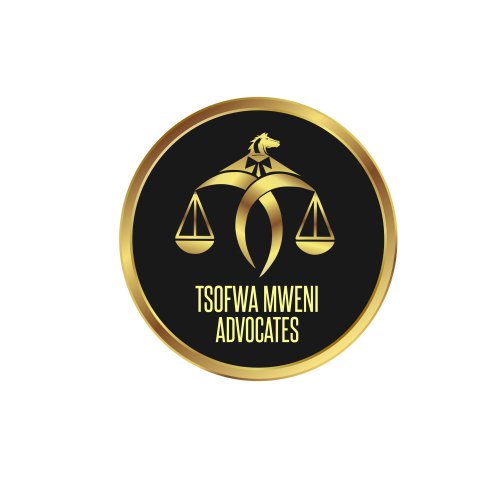Best Debt Capital Markets Lawyers in Kenya
Share your needs with us, get contacted by law firms.
Free. Takes 2 min.
Or refine your search by selecting a city:
List of the best lawyers in Kenya
Legal guides written by Adroit Law LLP:
- Kenya Launches Digital Nomad Visa: A Gateway for Remote Workers
- Navigating the Payment System License Maze in Kenya
- Navigating the Complexities of Mining Licenses and Permits in Kenya: A Look into Artisanal and Large-Scale Operations
About Debt Capital Markets Law in Kenya
Debt capital markets in Kenya refer to the market segment where entities such as corporations, financial institutions, and the government raise funds through the issuance of debt instruments such as bonds, notes, and commercial paper. The debt capital markets play a crucial role in providing long-term and medium-term financing for development projects, infrastructure, and corporate expansion. Kenya’s debt capital markets have significantly evolved in recent years, attracting both local and international investors, and are predominantly regulated by laws and guidelines put in place by the Capital Markets Authority (CMA) and other relevant regulatory bodies.
Why You May Need a Lawyer
Engaging in the debt capital markets in Kenya can be complex because of the regulations and documentation involved. Here are common situations where you may require a legal expert:
- Advising on structuring and issuance of bonds and other debt securities
- Reviewing offering documents and disclosure requirements
- Ensuring compliance with all legal and regulatory frameworks as required by the CMA and the Nairobi Securities Exchange (NSE)
- Drafting and negotiating agreements with lenders, investors, and other parties
- Advising on private placements, public offers, and shelf registration of debt securities
- Representing issuers or investors in case of disputes or enforcement actions
- Guiding on cross-listing or international offerings for Kenyan issuers
- Facilitating due diligence and risk assessment for debt transactions
Local Laws Overview
Kenya’s debt capital markets are primarily governed by the Capital Markets Act, the Companies Act, and the Central Depositories Act. The Capital Markets Authority (CMA) is the main regulator and is responsible for licensing, supervising, and developing the capital markets. The Nairobi Securities Exchange (NSE) provides the marketplace for listing and trading of debt securities.
Key aspects of local laws relevant to debt capital markets in Kenya include:
- Requirement for issuers to obtain approval from the CMA before issuing debt securities to the public
- Mandatory preparation and publication of an information memorandum or prospectus for public offerings
- Continuing disclosure obligations for listed debt securities, including regular reporting
- Compliance with financial and corporate governance standards
- Regulations on credit rating and engagement with registered credit rating agencies
- Rules on cross-border debt issuance and participation by foreign investors
- Tax incentives and withholding tax regimes for interest on debt instruments
Frequently Asked Questions
What are debt capital markets?
Debt capital markets are financial markets where organizations can raise funds by issuing debt instruments such as bonds, commercial papers, and notes instead of equity shares.
Who can issue debt securities in Kenya?
Corporations, financial institutions, the government, and sometimes county governments are permitted to issue debt securities subject to approval by the Capital Markets Authority.
Do I need regulatory approval to issue debt securities?
Yes, all public offers of debt securities must be approved by the Capital Markets Authority in Kenya.
What is the role of a legal advisor in a debt issuance?
A legal advisor ensures that the proposed debt transaction complies with Kenyan laws and regulations, reviews and prepares the required documentation, provides risk analysis, and represents the client before regulatory authorities.
Are there continuing obligations after issuing debt securities?
Yes, issuers must regularly report financial and corporate information to maintain transparency and comply with continuing disclosure requirements.
What are the tax implications for debt capital market instruments?
Tax implications may include withholding tax on interest income, exemptions or incentives for infrastructure bonds, and requirements for proper tax reporting.
Can foreigners invest in Kenyan debt securities?
Yes, foreigners can invest, subject to certain foreign exchange regulations and compliance with local laws, though some restrictions may apply in specific cases.
What documents are needed to issue a bond in Kenya?
Key documents include the information memorandum or prospectus, legal opinions, corporate authorizations, agreements with intermediaries, and CMA application forms.
What is the Nairobi Securities Exchange's role in debt capital markets?
The NSE provides the platform for listing, trading, settlement, and reporting of debt securities issued in Kenya.
How long does it take to issue debt securities in Kenya?
The timeframe can vary but generally takes several months, depending on preparation, regulatory review, and market conditions.
Additional Resources
For further information and support regarding debt capital markets in Kenya, you may refer to the following:
- Capital Markets Authority (CMA) - Regulatory guidelines and market updates
- Nairobi Securities Exchange (NSE) - Listing requirements and trading information
- Central Bank of Kenya (CBK) - Supervisory frameworks for financial stability
- Kenya Association of Stockbrokers and Investment Banks (KASIB) - Industry updates
- Law Society of Kenya - Directory of financial and capital markets lawyers
- Kenya Revenue Authority (KRA) - Tax guidelines for debt instruments
Next Steps
If you are considering engaging in Kenya’s debt capital markets, it is advisable to consult a lawyer specializing in capital markets or financial law. Begin by outlining your objectives and gathering all relevant company or transaction documents. Research and shortlist reputable legal firms or practitioners experienced in debt capital markets. Arrange for an initial consultation where you can discuss your specific needs, potential risks, and compliance requirements. Take time to understand fee structures, timelines, and deliverables before making a decision. Finally, maintain ongoing communication with your legal advisor to ensure continued compliance and address any legal challenges as they arise during or after the transaction.
Lawzana helps you find the best lawyers and law firms in Kenya through a curated and pre-screened list of qualified legal professionals. Our platform offers rankings and detailed profiles of attorneys and law firms, allowing you to compare based on practice areas, including Debt Capital Markets, experience, and client feedback.
Each profile includes a description of the firm's areas of practice, client reviews, team members and partners, year of establishment, spoken languages, office locations, contact information, social media presence, and any published articles or resources. Most firms on our platform speak English and are experienced in both local and international legal matters.
Get a quote from top-rated law firms in Kenya — quickly, securely, and without unnecessary hassle.
Disclaimer:
The information provided on this page is for general informational purposes only and does not constitute legal advice. While we strive to ensure the accuracy and relevance of the content, legal information may change over time, and interpretations of the law can vary. You should always consult with a qualified legal professional for advice specific to your situation.
We disclaim all liability for actions taken or not taken based on the content of this page. If you believe any information is incorrect or outdated, please contact us, and we will review and update it where appropriate.
Browse debt capital markets law firms by city in Kenya
Refine your search by selecting a city.

















